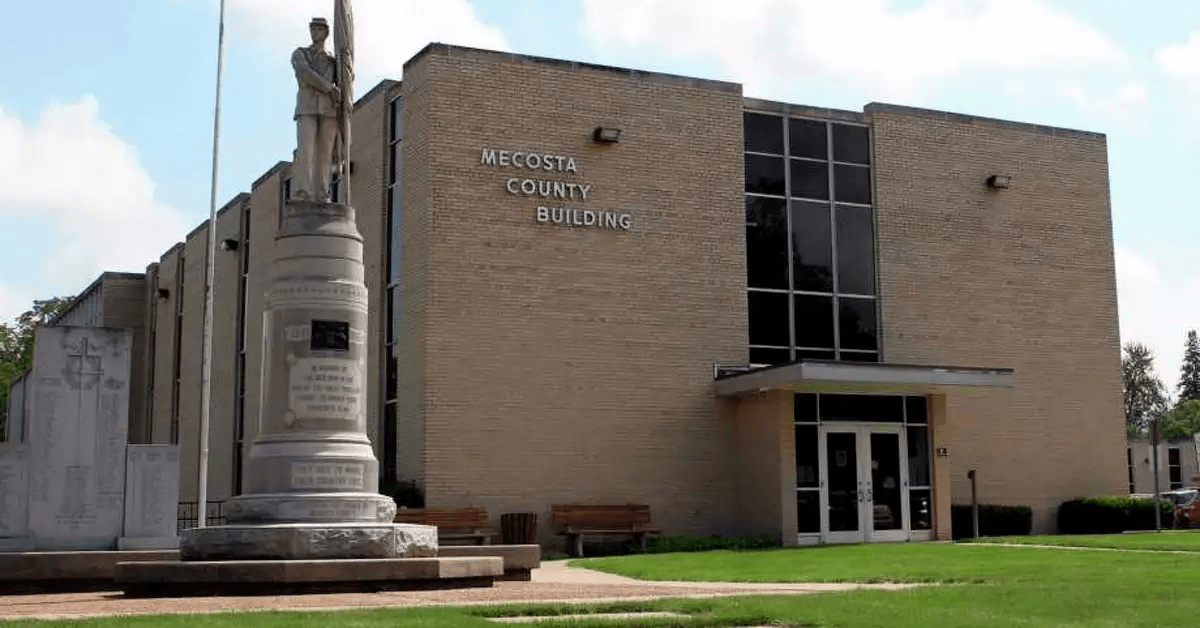Michigan Cannabis Industry Eyes Relief from 280E Tax with Proposed DEA Rescheduling

The cannabis industry in Michigan could experience significant financial relief if the federal government proceeds with a proposed reclassification of cannabis as a less hazardous substance. Currently classified as a Schedule I drug, alongside substances like heroin and LSD, cannabis might soon be shifted to Schedule III, which is subject to less stringent regulations.
Raul Molina, the Chief Operations Officer at Mint Cannabis, highlighted that nearly 40% of industry profits are consumed by the so-called 280E tax, a burden that could be alleviated by the reclassification. The 280E tax, only applicable to Schedule I and II substances, severely limits the deductions businesses can claim, essentially taxing gross income rather than net.
"Rescheduling cannabis would be an incredible advancement, greatly benefiting the industry," Molina stated. He pointed out that the change would not only reduce taxes but also allow businesses to claim deductions common in other industries, such as rent and utilities, which are currently disallowed under the 280E tax provisions.
The economic impact in Michigan could be particularly notable. According to Molina, despite high demand for cannabis in Michigan, profit margins remain tight due to an oversupply. "The removal of the 280E tax wouldn't likely lead to higher prices for consumers but would enhance profit margins for producers," he explained.
The proposal for reclassification by the Drug Enforcement Administration (DEA) is currently under review by the White House Office of Management and Budget. It must also undergo a public comment period and a review by an administrative judge, indicating that any changes could still be some time away.
This potential shift could mean significant operational savings for cannabis businesses and, consequently, lower costs for consumers in Michigan, fostering a more robust and financially sustainable industry.
The Future of Cannabis in Michigan: From Federal Rescheduling to State Reforms

For many years, the federal regulation of marijuana has directly contradicted the preferences of a significant portion of American voters, including a majority in Michigan since 2008. Now, a groundbreaking shift is on the horizon. According to reports from the AP, which cite five anonymous sources, the Drug Enforcement Administration (DEA) is set to propose a major change in the classification of marijuana, potentially reshaping its legal status in the United States.
Upcoming Federal Decision Could Reclassify Cannabis, Shifting Legal Landscape

In an ongoing federal review initiated by President Joe Biden in October 2022, there are signs that the U.S. may soon see a significant shift in the classification of cannabis under federal law. According to sources within the prohibitionist group Smart Approaches to Marijuana, a decision on cannabis rescheduling could be imminent, potentially happening within days. This move, sparked by a recommendation from the Department of Health and Human Services (HHS) made on August 29th, 2023, suggests shifting cannabis from a Schedule I to a Schedule III substance, which could fundamentally alter its legal status and implications.
Meanwhile, Michigan's legal landscape concerning cannabis continues to evolve, with the Michigan Supreme Court slated to hear a pivotal case on marijuana business licensing on May 8th. The outcome could influence the regulatory framework and operation of cannabis businesses within the state.
Amidst these developments, a secretive aspect of the federal review process has come to light involving the Department of Justice's Office of Legal Counsel (OLC). Reports indicate that the Health and Human Services Department has solicited the OLC's guidance on legal issues concerning the rescheduling of cannabis. This inter-agency consultation points to potential conflicts or complexities in the rescheduling process, especially given the contrasting stances of various federal bodies. The U.S. Drug Enforcement Administration (DEA), tasked with the final determination, reportedly remains skeptical about the medicinal benefits of cannabis, citing concerns over the potency of modern cannabis strains and the necessity for further research on its long-term health effects.
The OLC's involvement is particularly noteworthy due to its role in providing legal advice on significant governmental matters, often shrouded in confidentiality. This advisory role could decisively impact the rescheduling decision, given the OLC's authority to settle legal disputes within the executive branch.
Shane Pennington, an attorney with experience in federal cannabis policy, emphasized the potential influence of the OLC. Pennington, who has previously engaged in legal actions against the DEA regarding cannabis research, highlighted the secretive nature of the OLC and its capacity to issue binding legal opinions that could resolve or escalate inter-agency disagreements.
The broader implications of rescheduling cannabis extend well beyond the legal sphere. A shift from Schedule I to Schedule III would acknowledge the drug's potential medical benefits, significantly impacting the research landscape and possibly altering the business operations of the cannabis industry by easing some federal tax burdens.
This development aligns with broader shifts in public and political attitudes towards cannabis. Recent polls indicate increasing support for the legalization of cannabis for both medical and recreational use, reflecting a societal shift towards more permissive views on cannabis.
The rescheduling effort also intersects with legislative movements, such as the proposed SAFER Banking Act and the HOPE Act, which aim to facilitate the operation of legal cannabis businesses and address the historic injustices associated with cannabis prohibition.
As federal agencies, legal experts, and stakeholders await further developments, the potential rescheduling of cannabis remains a contentious and transformative issue at the nexus of public health, law, and policy.
Claire Patterson to Lead Michigan's New Cannabis Testing Initiative

Michigan's commitment to ensuring the safety and reliability of its booming cannabis industry is set to strengthen with the establishment of a new state-run reference laboratory, scheduled to open by the end of 2024. The Michigan Cannabis Regulatory Agency (CRA) has appointed Claire Patterson as the director of this pivotal initiative. Patterson, a respected figure with substantial experience in both the scientific and regulatory spheres of the cannabis industry, will lead the lab, aiming to set a new standard in cannabis testing and safety.
A Comprehensive Approach to Cannabis Testing
With her extensive background in plant biology from Michigan State University and hands-on experience in the field, Patterson is uniquely qualified to oversee the development of this facility. Having joined the CRA in March 2019, she quickly rose through the ranks to manage both scientific and legal sections, demonstrating her capability to bridge the gap between regulatory requirements and industry practices.
The upcoming reference laboratory is not merely a testing facility but a cornerstone of Michigan's strategy to improve the cannabis industry's oversight. By optimizing and verifying standard testing methods, the laboratory will enhance the CRA's audit and investigative capabilities. This is crucial for maintaining high compliance standards without placing undue financial burdens on licensed cannabis operators.
Goals and Functions of the New Laboratory
The laboratory's mission encompasses several key functions:
- Supporting Enforcement and Compliance: The lab will provide essential data for CRA enforcement investigations, ensuring that industry standards are not only met but consistently exceeded.
- Facilitating Industry-Wide Audits: Regular audits will be supported by the lab's testing results, promoting transparency and accountability across the industry.
- Optimizing Testing Methods: A significant focus will be on refining current testing standards and developing new methods that can meet the challenges of a rapidly evolving market.
- Third-Party Collaboration: The lab will review and potentially enhance third-party audit programs, ensuring that external checks align with state goals.
- Developing Proficiency Testing Programs: To guarantee that all licensed laboratories achieve a high level of accuracy and consistency, the lab will establish a comprehensive proficiency testing program.
Patterson's Vision and Leadership
Under Patterson's leadership, the laboratory is expected to become a national model for cannabis testing. Her work with the Cannabis Regulators Association (CANNRA) as a workgroup chair for the Lab Testing and Product Safety committee has already established her as a key resource for cannabis regulators nationwide.
"My objective since joining the CRA has been to legitimize testing in the cannabis industry, and I will pursue this goal until the end of my career," Patterson remarked. Her passion for the science of cannabis is matched by her commitment to public safety and industry advancement.
Implications for Michigan's Cannabis Industry
The establishment of the state-run reference laboratory is a significant step towards enhancing consumer safety and reinforcing the scientific integrity of the cannabis industry in Michigan. By setting rigorous testing standards and providing a benchmark for quality, Michigan is positioning itself as a leader in cannabis regulation and safety, ready to face the challenges of an ever-growing industry.
This initiative not only underscores Michigan's proactive approach to cannabis regulation but also reflects a broader commitment to public health and safety. As the industry continues to evolve, the reference laboratory will undoubtedly play a crucial role in shaping the future of cannabis testing both in Michigan and potentially across the nation.
Public Divides Over Cannabis Ordinance at Bad Axe Planning Commission Meeting

The Bad Axe Planning Commission recently held a public hearing on April 24th to discuss zoning related to a proposed cannabis ordinance, generating a mixture of support and opposition among residents. The meeting took place at Bad Axe City Hall, following an earlier session held by the Bad Axe City Council where the community first voiced their concerns.
At the latest hearing, residents expressed varied opinions on whether cannabis establishments should be allowed within the city. Proponents like Megan Mellas emphasized the potential benefits, arguing that approved establishments would provide safe, regulated access to cannabis both for recreational and medicinal purposes. Mellas highlighted the educational opportunities such facilities could offer on responsible usage and noted the economic growth, education enhancements, and cultural impacts they could bring. Additionally, she pointed out that legal sales locations would help undercut the illegal market.
Brock McCellan also supported the ordinance, reminding attendees that cannabis is already legal statewide. He argued that the community would benefit from regulated access points within the city rather than forcing residents to seek alternatives elsewhere.
In contrast, opposition came from residents like Luke Deming, who expressed concerns over increased access to cannabis and the potential for abuse. Deming criticized the notion of promoting such businesses in a community already tackling drug issues.
During the meeting, Bad Axe City Manager Rebecca Bachman clarified that the commission was not voting but rather discussing potential zoning implications and preparing recommendations for the Bad Axe City Council. Planning Commission member Jesse Klaska raised concerns about the proximity of proposed retail locations to residential areas, particularly apartments in the downtown area.
The discussion also covered operational concerns. Police Chief Shawn Webber was present to address regulatory questions, emphasizing that consumption of recreational cannabis would be restricted to private residences and explaining that any public complaints would be handled by the state's Cannabis Regulatory Agency.
The session concluded with an acknowledgment that the proposal would undergo further review by the city attorney before potentially being included on the agenda for a final vote by the city council in May.
Mecosta County to Allocate Cannabis Excise Tax Revenue in Upcoming Work Session

The Mecosta County Board of Commissioners is preparing for an important work session on May 14th, where they will decide on the allocation of the significant funds received from the state's 2023 adult-use recreational cannabis excise tax. The county has been allocated $886,295, which amounts to approximately $59,000 for each of the 15 licensed retail establishments in their jurisdiction under the Michigan Regulation and Taxation of Marijuana Act.
The primary focus of the session will be to strategize the distribution of these funds to community projects. The commissioners aim to establish a framework and timeline for community organizations to apply for this special funding. Until the board's session, no funding requests will be accepted.
Paul Bullock, the County Administrator, noted that an application form for these funds will be made available on the county's official website towards the end of May. "Agencies interested in applying can download, complete, and submit their application for the board's consideration," Bullock explained. He added that the board plans to review all submissions by late June and will inform applicants of the subsequent steps in July.
Bullock anticipates that the approved funds could be accessible between mid and late August, following a thorough review and approval process by the board.
In addition to the county's allocation, the city of Big Rapids also received an identical amount of $886,295 in cannabis excise tax funding from the state. The city has designated these funds for capital improvement projects within the general fund.
In 2023, both the city and the county were each awarded $881,300, based on the presence of 17 active retail licenses. The previous year saw both entities receiving $677,441. These funds have previously supported various community initiatives, such as the Dragon Trail project, the acquisition of safety equipment for first responders, funding for a free medical clinic, programs addressing child hunger, and road maintenance.
For those interested in applying for funding or seeking more details, please visit mecostacounty.org.


 Helpful Links
Helpful Links